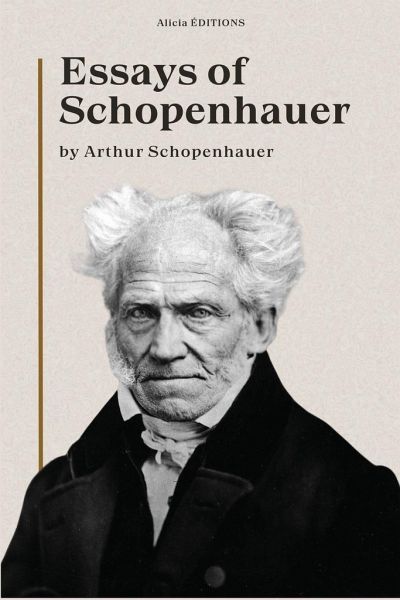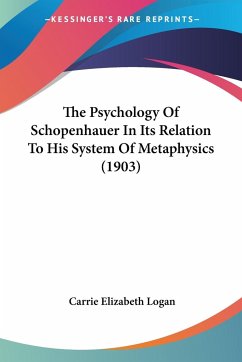
Essays of Schopenhauer
New Large Print Edition including a biographical note
Versandkostenfrei!
Versandfertig in 1-2 Wochen
16,99 €
inkl. MwSt.

PAYBACK Punkte
8 °P sammeln!
These essays are a valuable criticism of life by a man who had a wide experience of life, a man of the world, who possessed an almost inspired faculty of observation. Schopenhauer, of all men, unmistakably observed life at first hand. He was for his time, and for his country, an adept at literary form; but he used it only as a means. Complicated as his sentences occasionally are, he says many sharp, many brilliant, many epigrammatic things, but these fireworks are not merely a literary display, they are used to illumine what he considers to be the truth. "Rien n'est beau que le vrai; le vrai s...
These essays are a valuable criticism of life by a man who had a wide experience of life, a man of the world, who possessed an almost inspired faculty of observation. Schopenhauer, of all men, unmistakably observed life at first hand. He was for his time, and for his country, an adept at literary form; but he used it only as a means. Complicated as his sentences occasionally are, he says many sharp, many brilliant, many epigrammatic things, but these fireworks are not merely a literary display, they are used to illumine what he considers to be the truth. "Rien n'est beau que le vrai; le vrai seul est aimable", he quotes; he was a deliberate and diligent searcher after truth, always striving to attain the heart of things, to arrive at a knowledge of first principles.














